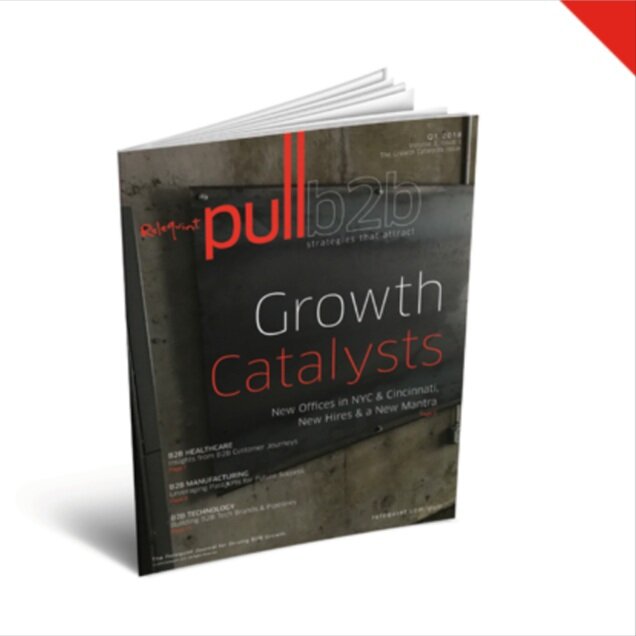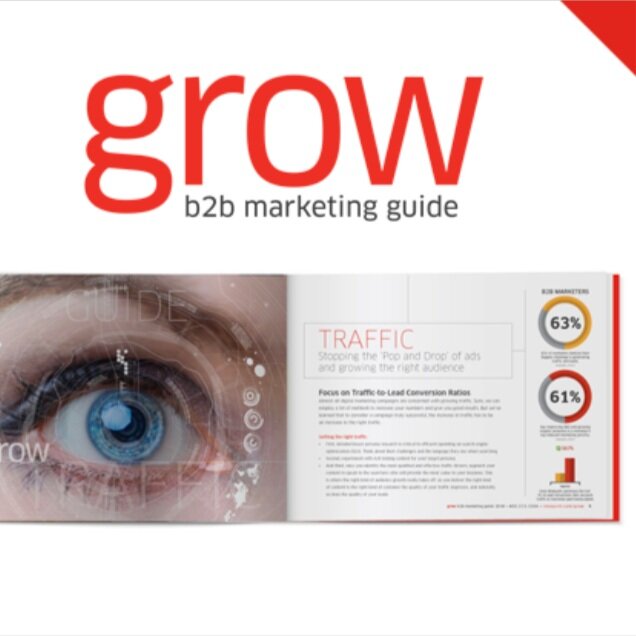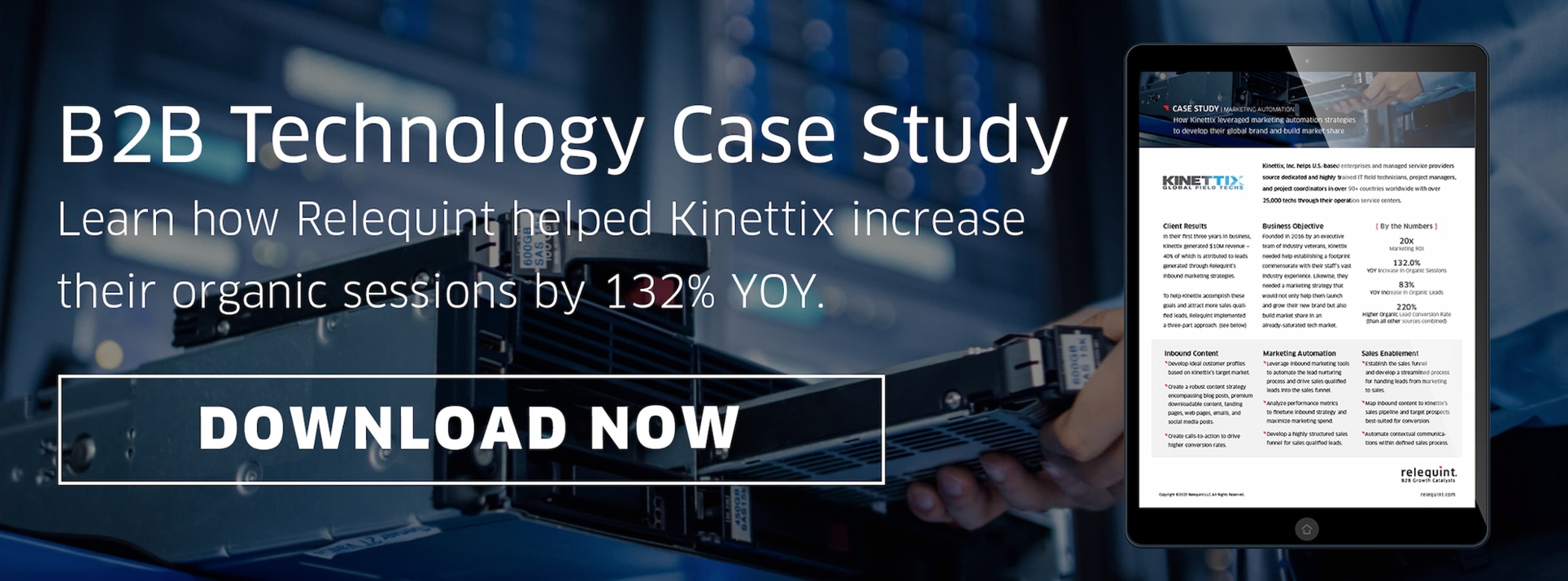 As a B2B marketer in the technology industry, you likely know how crucial content is for driving business. Not only does it help you establish your brand as a thought leader in the eyes of your target audience, but it can also help you convert them to sales qualified leads. What you may not know, though, is that marketing automation can take your content strategy to the next level, bringing a higher return on investment and increased conversion rates.
As a B2B marketer in the technology industry, you likely know how crucial content is for driving business. Not only does it help you establish your brand as a thought leader in the eyes of your target audience, but it can also help you convert them to sales qualified leads. What you may not know, though, is that marketing automation can take your content strategy to the next level, bringing a higher return on investment and increased conversion rates.
5 Ways Marketing Automation Can Improve Your Content Strategy
1. Send the Right Message at the Right Time
Marketing automation is all about delivering the right message to the right audience at the right time. Email automation, for example, works by automatically sending out communications based on your defined parameters. This means you don’t have to manually choose who should receive each message, and you can trust the software to identify marketing qualified leads and send an email when the timing is right.
Automation will not only pick the right audience for each email, but it can also identify which stage of the buyer’s journey they’re in and send valuable information that lead them to purchase.
2. Achieve a Higher Click-Through Rate
Whether you’re writing a blog or scheduling an email, you want prospects to click your calls-to-action and visit your site. Doing so allows you to continue nurturing the relationship.
Marketing automation software can help you track the relevance of certain keywords, so you can make sure you’re creating content that is relevant to your ideal customers. The more relevant the content, the more likely the prospect is to
As far as email goes, we already established that marketing automation can help you send the right message to the right prospect at the right time. Research by the Epsilon Email Institute estimates that automated emails boast a 70.5% higher open rate and 152% higher click-through rate than “business as usual” marketing messages. By leveraging marketing automation as well as directing leads towards the proper landing pages, they are more likely to continue to engage with the site absorbing more information about the products and services that are offered.
3. Create a Unified, Data-Driven Strategy
With non-automated campaigns, efforts typically go through a more siloed approach, as independent parts of the much larger content strategy. By leveraging marketing automation, you’ll be able to see how every aspect of your content strategy works together — from social media and blogs to email and web copy.
In turn, these insights better allow you to see the big picture, instead of looking at ad hoc data from different channels. This provides for greater efficiency and also allows you to identify specific areas that need strengthening.
4. Improve ROI Through Qualified Leads
Automating your content can also help you to maximize your return on investment. B2B technology companies that use marketing automation often see a 10% increase in revenue in as short as six to nine months after execution.
Businesses will also see a significant increase in sales qualified leads, as automation efficiently identifies prospects and sends them content that would pique their interest and desire to engage with your company. For some companies, the increase in qualified leads is four times more than with a non-automated campaign. Conversion rates are also better, allowing for improved customer growth at a lower acquisition cost.
5. Personalize All Communications
Content personalization is all about tailoring your marketing messages to reach your ideal customers when they are most likely to purchase.
B2B technology on its own tends to be related to less human interaction and, therefore, less personalization. By tailoring your brand’s messages and delivering timely content to your prospects, you can set your business apart from the competition and create a human interaction that is often lost in this particular industry.
Marketing automation can achieve this personalization in a number of ways. For instance, it can help your strategists identify which topics resonate best with the target audience. Then, you can produce content that’s focused on the technological problems your prospects are currently facing and present viable solutions. Once you have piqued their interest, these tools can help you to continue engaging with your desired audience and help them through each phase of the sales funnel.
Automation can not only help you target customers and drive conversions, but it can also help you measure your content’s efficacy. Through tracking and monitoring, you can adjust your strategy to gain the ROI that your need for the campaign to be successful.
From helping you to better gain qualified sales leads through personalization, to delivering content to prospects when they are hungry for it most, makes marketing automation one of the most effective tools in a content strategy. To find out more about how marketing automation can propel your content strategy to the next level, download our B2B technology case study.![]()







 By
By 
